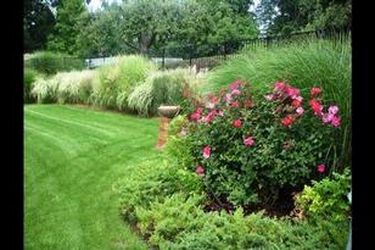Many people think gardening takes a lot of time and work. This is not always the case! There are types of gardens to suit all climates and lifestyles. In many places, native plant gardens require little water and will attract beautiful butterflies. Even if you have only a small yard, or no yard at all, you can grow herbs and vegetables in pots. This article provides some helpful tips for home gardeners.
Find the crops that grow well in your local climate and the soil in your garden. If you try to force a plant that doesn’t like your weather, you’ll end up putting out a lot of work for very little result. What grows well one year will probably grow well next year too, so plant it again.
If you have specimen plants which need warmer climate zones than the rest of your garden, you can easily create a suitable space for them within your regular garden! Just create a shelter with a south facing wall which will become a solar collector, absorbing warmth in the day and releasing it at night, thus providing your specimen plants with the perfect environment!
Healthy Garden
Attract positive bugs to your garden. Bugs like lady-bugs actually hunt natural predators to your plants; aphids and caterpillars are just some of the nasty critters that can go through a garden and eat the leaves of the plants. Lady bugs are the natural predators to such pests and help the growth of a good healthy garden by consuming pests.
Test your soil before starting your organic garden. A healthy soil is the primary ingredient in a healthy garden. If you start by testing your soil, you will know what nutrients it lacks, and also which nutrients are in over abundance. Once you find out where your soil stands, you can make natural modifications to help ensure a healthy start for your garden.
Vegetable
When the vegetable season is over, grow a shoulder season crop if possible. Fruits like strawberries or raspberries bear fruit very early or very late in the season before or after the summer vegetable crops take over and can be planted. Raspberries can be planted to bear fruit in the fall and strawberries can be planted to bear fruit in the spring.
Start a compost bin, and enjoy nutrient-rich fertilizer that you can use for your vegetable plants, herbs, flowers and more. Food scraps and peels, coffee grounds, eggshells, newspaper, paperboard, yard waste and other organic matter are perfect additions to your compost bin. Keep a small bucket or bag in your freezer as an odor-free way to collect kitchen waste, and empty the container into the outdoor bin when it is full.
Organic
Buy Diatomaceous earth as an alternative to toxic pesticides or adding predatory insects to your garden. Diatomaceous earth is natural, organic, and non-toxic as well as inexpensive and easy to find. It is a green way to keep pests under control. Sprinkle over the surface of soil and water as normal.
One of the best ways to be successful at organic gardening is to plan early. The best laid out plans for an organic garden, always make for the most successful garden. Plan what you will plant early on and be sure to have back-up vegetables ready to plant when short-lived plants, like lettuce and spinach, are done for the year.
Whether you want to grow your own food or herbs, provide a habitat for wildlife, or just like to stop and smell the flowers, almost anybody can make a garden, even in small spaces. Use the knowledge gained from this article to make the most of your home garden, whatever type it may be.

